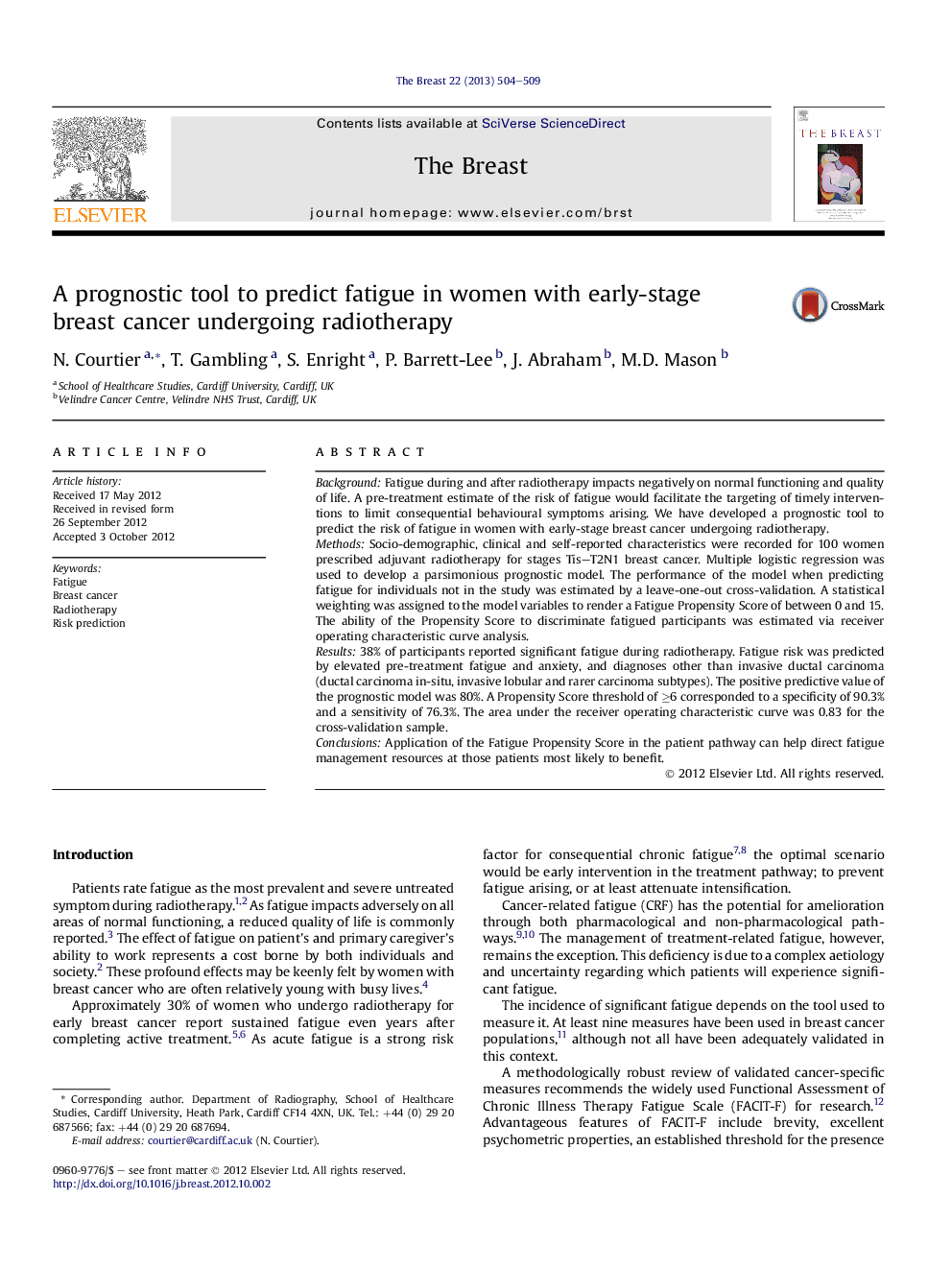| Article ID | Journal | Published Year | Pages | File Type |
|---|---|---|---|---|
| 6170087 | The Breast | 2013 | 6 Pages |
BackgroundFatigue during and after radiotherapy impacts negatively on normal functioning and quality of life. A pre-treatment estimate of the risk of fatigue would facilitate the targeting of timely interventions to limit consequential behavioural symptoms arising. We have developed a prognostic tool to predict the risk of fatigue in women with early-stage breast cancer undergoing radiotherapy.MethodsSocio-demographic, clinical and self-reported characteristics were recorded for 100 women prescribed adjuvant radiotherapy for stages Tis-T2N1 breast cancer. Multiple logistic regression was used to develop a parsimonious prognostic model. The performance of the model when predicting fatigue for individuals not in the study was estimated by a leave-one-out cross-validation. A statistical weighting was assigned to the model variables to render a Fatigue Propensity Score of between 0 and 15. The ability of the Propensity Score to discriminate fatigued participants was estimated via receiver operating characteristic curve analysis.Results38% of participants reported significant fatigue during radiotherapy. Fatigue risk was predicted by elevated pre-treatment fatigue and anxiety, and diagnoses other than invasive ductal carcinoma (ductal carcinoma in-situ, invasive lobular and rarer carcinoma subtypes). The positive predictive value of the prognostic model was 80%. A Propensity Score threshold of â¥6 corresponded to a specificity of 90.3% and a sensitivity of 76.3%. The area under the receiver operating characteristic curve was 0.83 for the cross-validation sample.ConclusionsApplication of the Fatigue Propensity Score in the patient pathway can help direct fatigue management resources at those patients most likely to benefit.
